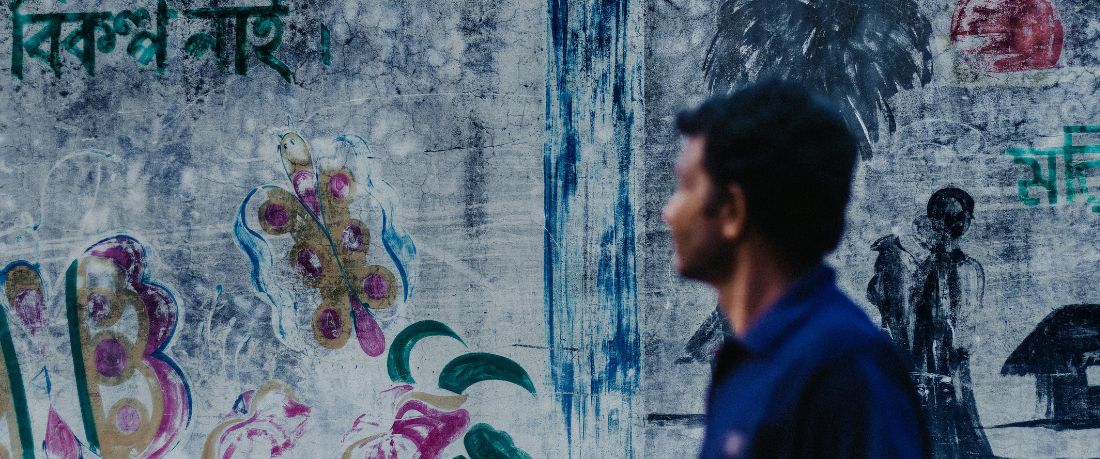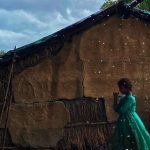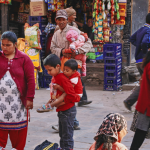In Bangladesh, the struggle for LGBT+ rights has several dimensions. Despite constitutional guarantees of freedom of association, legislative and socio-political barriers severely limit the ability of LGBT+ groups to organise and operate. From an organisational perspective, this includes challenges in registration, securing and utilising international funding, and routine functioning.
The Voluntary Social Welfare Agencies (Registration and Control) Ordinance of 1961 and other restrictive regulations, compounded by intense scrutiny from intelligence agencies, create an environment of fear and oppression. All these add up to marginalise a significant portion of the population, preventing them from accessing much-needed support and advocacy.
It is a crucial moment to examine these questions in Bangladesh, which has gone through a turbulent political change and is now led by an interim government that has replaced the government of the past 15 years. However, it is distressing to note that the situation for LGBT-led organisations has not shown signs of improvement so far. To allow such initiatives to function and thrive, it is essential to take note of the key challenges they face and find ways to address them.
In this three-part article, we explore these multifaceted challenges faced by LGBT+ organisations, share the experiences of LGBT+ organisations working on the ground, and reflect on the collective learning that helps sustain their crucial work.
The Challenge of Registration
While the Constitution guarantees freedom of association under Article 38, the provision is significantly restricted by the clause that allows “reasonable restrictions imposed by law in the interest of public order and morality.” Given the current legal and moral landscape, this effectively means that LGBT+ groups are disqualified from legally forming an organisation.
A fundamental barrier lies in the Voluntary Social Welfare Agencies (Registration and Control) Ordinance, 1961. This states that any group wishing to register as a social organisation must do so through the Department of Social Services. However, the “Schedule” of this Act does not recognise the welfare of sexual and/or gender-diverse people as valid areas of social welfare. Consequently, LGBT+ organisations cannot obtain legal recognition or registration, making it impossible for them to operate openly.
It is worth noting that some Hijra community groups have registered their organisations by misrepresenting themselves as intersex, under the category of youth and women’s welfare. These rare instances involve navigating opaque processes and presenting false information. In the Department of Social Services Hijra Policy, “Hijra” primarily refers to intersex individuals rather than transgender identities, providing an additional loophole for such organisations.
So far, no LGBT+ group has been successful in registering in Bangladesh as an LGBT+ organisation under the Department of Social Services, Department of Youth Development, and Department of Women Affairs. This is largely because it requires undergoing a vetting process by intelligence agencies like the Special Branch of the Bangladesh Police and the National Security Intelligence. This scrutiny extends to the personal lives of the individuals involved in the organisations, creating a pervasive fear of oppression and harassment, leaving no alternative path for LGBT+ organisations to register themselves.
The Foreign Donations (Voluntary Activities) Regulation Act of 2016 makes the situation even more difficult. This Act mandates that any organisation seeking foreign donations must be registered as an NGO with the Bureau of NGO Affairs. However, this registration process includes the same rigorous checks by police and intelligence agencies making it exceptionally difficult for LGBT+ organisations to comply without facing significant risks of exposure and subsequent persecution.
The International Funding Dilemma
It is a paradox that foreign donors, who are committed to the advancement of LGBT+ rights, typically require recipient organisations to be registered with the Bureau of NGO Affairs to ensure transparency and accountability. Many funding calls explicitly state this requirement. Even when it is not directly mentioned, the stipulation of having a bank account in the organisation’s name indirectly necessitates formal registration.
However, as previously described, the legal process for an LGBT+ organisation to obtain registration as a social or non-profit entity is fraught with insurmountable barriers, which discourages many of them from even attempting to register due to fears of persecution and harassment.
Additionally, an operational office is a mandatory requirement for registration. Many established Hijra rights organisations were compelled to suspend their official activities between February and March 2024, following threats from fundamentalist groups. This hostile environment makes it nearly impossible for new LGBT+ organisations to maintain a fixed office location.
In this precarious climate, only one organisation in Bangladesh has managed to secure the necessary registration. This was achieved in the 1990s with a focus on HIV programmes. This organisation, despite its longstanding presence, remains highly vulnerable and has significantly curtailed its activities due to security concerns.
The stipulations of international donors, though well-intentioned, inadvertently exacerbate the challenges faced by LGBT+ organisations in Bangladesh. Without the ability to register formally, these organisations are excluded from crucially needed international funding. This exclusion not only hampers their operational capabilities but also stifles the overall progress of the LGBT+ movement in the country. The current legal and socio-political barriers thus create a complex funding dilemma where the conditions set by donors clash with the on-ground realities faced by LGBT+ organisations.
Experiences and Collective Learning
Despite the intense challenges, some international donor agencies and human rights organisations continue to provide crucial funds to LGBT+ organisations in Bangladesh, even without official registration. Historically, these unregistered groups have navigated legal restrictions by partnering with registered civil society organisations (CSOs) as financial intermediaries. However, a 2021 circular from the Prime Minister’s Office explicitly prohibited registered NGOs from transferring funds to unregistered entities. By 2023, stringent monitoring by the Bureau of NGO Affairs effectively halted this workaround, leaving many LGBT+ organisations in a precarious position.
In response, these organisations adapted by receiving funds as individual consultants through registered NGOs. This method is functional, but incurs significant financial penalties, with approximately 25 percent of funds lost to VAT and tax. Consequently, a substantial portion of the intended funding is diverted away from the primary activities.
The experiences of several LGBT+ leaders shed light on the complexities of fiscal partnerships. “Rong*,” a queer woman leader, describes the reliance on registered NGOs as fiscal partners. “Usually small organisations like ours have to accept big registered NGOs as fiscal partners, but in the past few years, fiscal partnership has become a kind of arbitrariness. Large organisations started making their own decisions regarding fund distribution. Since the legal registration is in their hands, in many cases, these fiscal partners force us to follow complicated bureaucratic procedures, even if the donor agencies do not demand it. It is very difficult for young and marginalised organisations like us to follow such a complex bureaucratic process, in which case, due to the complicated bureaucratic process, registered organisations do not give much preference to unregistered organisations like us in making decisions, so the funds we get can’t be used as per our plan.”
Similarly, the executive director of Kalpana*, an LGBT+ organisation, highlights the financial and operational strains imposed by such fiscal partnerships, “The organisations we support as fiscal partners are often not sensitive to the LGBT+ community. Again, a large portion of our funds are required to be paid to these fiscal partners for various expenses. In some cases, we are forced to pay as much as 30 per cent of our funds to these fiscal partners. We have to accept this situation for fear of losing relationships, and fear of not getting fiscal partners in the future.”
Collective Learning about Funding
Despite the significant challenges faced by LGBT+ organisations in Bangladesh, some instances of more flexible funding arrangements do exist. It is possible for donor organisations to explore funding models that bypass traditional registration requirements and consider funding through the personal accounts of organisation members, with appropriate safeguards for transparency and accountability. For example, in 2024, a Netherlands-based donor agency approved a project for ‘Joddha🞶’, an LGBT+ organisation, without requiring formal registration or a dedicated bank account. Instead, funds were deposited in the personal bank account of an executive member, with the written approval of all other executive members of the organisation. While this method raises concerns about financial security, transparency, and accountability, it also highlights the innovative solutions LGBT+ organisations are adopting to sustain their vital work.
Donor organisations interested in strengthening LGBT+ rights and movements in Bangladesh should consider such alternative funding models. The process of finding a fiscal partner is complex and often accessible only for established LGBT+ organisations based in Dhaka. This leaves grassroots groups at a disadvantage due to their lack of resources and networks. Consequently, the flow of funds remains concentrated in the capital, centralising the movement in the hands of a few. This centralisation limits the broader LGBT+ community’s involvement and undermines the impact of advocacy and awareness efforts.
To address this funding challenge, donor organisations can explore decolonising funding models, enabling grassroots organisations to receive support and strengthen their capacity to ensure a just society. Additionally, investing in capacity building for grassroots organisations, establishing regional support hubs for effective collaboration with grassroots LGBT+ organisations, and prioritising community-led initiatives can ensure a more inclusive and effective distribution of funds.
*All names of individuals and organisations mentioned in this article have been changed to protect their privacy.
By Jubdatul Jabed–Program Manager, Bangladesh







